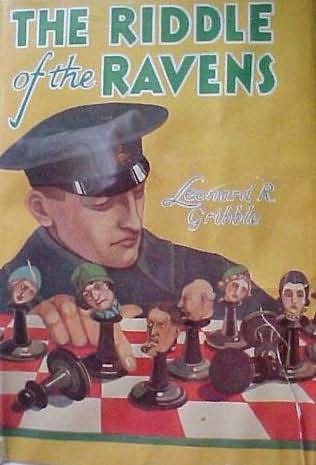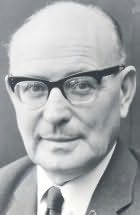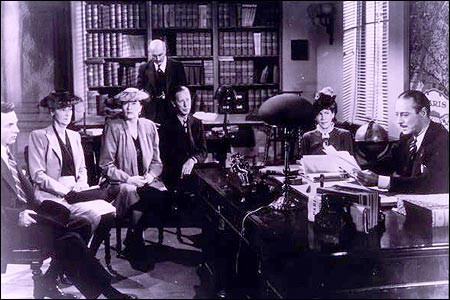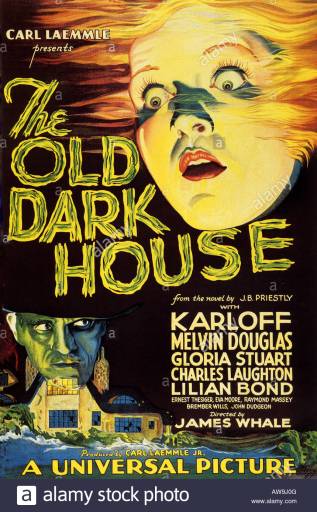“Seconds ticked by, and Slade’s glance did not leave the door. He was not thinking of the young man before him; he knew he would not tell the truth. He was wondering whether his hare-brained scheme – as it now seemed – would work, whether he would hoist the murderer with his own petard, and finish the case before he left Ravenscroft. He felt a thrill of elation at the thought. To have solved the case in twelve hours! That sort of thing happened only in fiction, not in real life. Murder cases were dreary rounds of routine that dragged into weeks and sometimes months, with little encouragement and few high-spots of excitement, plenty of kicks from the Press and censure from those higher up. Romance, too, was something that didn’t poke its head in real-life police dramas . . . “
Since my return from London, I’ve been on a mission: Curtis Evans, GAD historian and friend of this blog – hell, he pretty much inspired my own blogmanship – has spent the past number of years unearthing previously-successful-yet-presently-forgotten mystery authors . . . well, maybe not unearthing them but making a brilliant case for their re-publication and study. So, in conjunction with the British Library, has Martin Edwards. Some of these authors (Harriet Rutland, Roger Scarlett) only contributed a few titles, which may explain why they disappeared, but many of them (John Rhode, J.J. Connington, Henry Wade) were more prolific.
Because of the light shone on these writers of old, bloggers like JJ Jones are devoting scads of time worshipping at the methodical altar of Freeman Wills Crofts, while the Puzzle Doctor repeatedly travels down the dusty Rhode and has completely altered his wardrobe to reflect his responsibility in rediscovering Brian Flynn. JJ bared all to bring back the work of Theodore Roscoe, while Kate Jackson tied her pygmy goat down, sport, to call our attention to classic Australian author June Wright.

If they can do it, why can’t I? All I needed to find was an author, and repeated sojourns to Quinto’s Bookshop on Charing Cross Road offered up two possibilities. Unfortunately, I ran into innumerable problems with the first author, but I had high hopes for the second, particularly as I made this discovery in the excellent company of Martin Edwards, Kate Jackson, and Moira Redmond:

The book sported a smart cover (the reason, I gather, for its cost of twenty-five pounds). The conversation, as I recall, went something like this:
- Me: Who – or what – is Leonard Gribble?
- Kate: He wrote The Arsenal Stadium Mystery.
- Martin: Never heard of him.
- Kate: You published that book, Martin.
- Martin: Oh, yes.
The cover of this novel is lovely, but the price made me hesitate. Finally, after much severe prodding from the others –
- Me: Should I buy this?
- Martin: Mmm hmm . . .
- Kate: Whatever you want.
- Me: I wonder . . .
- Martin: Up to you.
- Kate: I’m going to head up the street now.
- Moira Redmond: Oh, do make up your mind, Brad!
– I paid for my purchase and took away a little bit of London GAD history.

Doing research on the author unearthed the fact that, in a career that spanned from 1929, when he was 21, to his death in 1985, he was exceedingly prolific. Leonard Gribble, alias Leo Grex, alias Louis Grey, a.k.a., Sterry Browning, or Bruce Sanders, or Dexter Muir, or Piers Marlowe, or . . . well, there were quite a few pseudonyms under which he wrote, according to Wikipedia,one hundred and one novels. Furthermore, the site Fantastic Fiction lists sixty-seven non-fiction titles. Not all his books are mysteries (he wrote some westerns under the name Landon Grant and dabbled in other genres). As far as whodunnits go, by far the largest number of them feature Superintendent Anthony Slade of Scotland Yard’s Department X2. Perhaps the most famous of these – and fame is relative, mind you – is The Arsenal Stadium Mystery, which is now available from the British Library, because that book was made into a movie. I recently watched that film on YouTube and found it problematic for reasons that are best explained by John Grant of the invaluable Noirish blog.
The Riddle of the Ravens (1934) was the eighth novel featuring Slade, and the inside cover description of my copy was . . . well, frankly, it was hilarious:
This is one of the most rapid stories the author has written. The action takes place in a single night, and before Inspector Slade arrives at the solution there are three dead men at Ravenscroft. During that night of horror and suspense in an old lonely house, with the telephone wires cut, Slade’s own life was saved by a miracle – twice. It was one of his most baffling cases. Anyone of nineteen people might be the murderer, and of that number fifteen appeared to have some motive!
The italics are my own. Re rapid: I love a mystery that moves quickly, but the question that arises after finishing any novel by a prolific author is whether the description refers to the novel’s pace or to the writing process. Re nineteen: this is what got me chuckling. That seems like an awful lot of suspects!!! The author provides a helpful family tree (although two of the three generations represented there are dead), and this is just one part of the suspect list. People like to complain about Christie’s Hercule Poirot’s Christmas, which was written four years later and has a mere ten suspects. I’m here to tell you that if anyone ever complains about HPC to me again, I will sit them down, tie them up, and read The Riddle of the Ravens aloud to them until they scream for mercy.
Let’s put it this way: you can carp about there being too many members of the Lee family in Christie’s book, or that they all basically represent “types.” Sure, that may be true, but I want to make two points about a Christie family vs. a Gribble clan:
- I can still remember each of the sons of Simeon Lee, and while a cynic could boil them down to dutiful Alfred, angry mama’s boy David, officious hypocrite George, and ne’er-do-well charmer Harry, they are lifted from the miasma of stereotype both by Christie’s way with dialogue and, more importantly, by the way they are reflected by their wives. We get to meet these people over a couple of days occurs and truly understand the misery that father Simeon puts them through before he is murdered. Meanwhile, I have the Gribble book beside me, and I can’t remember a single person unless I go back to the beginning and re-read the start. Oh yes, there’s blue collar socialist socialist Jim, shrewish Alice, ne’er-do-well Harry, sorry, Eddie, another son who just got married, some twins and a pretty girl named Celia. We watch them yell at each other in a brief scene before the plot is set up and the murder takes place. We don’t have time to get to know any of the Raven children, (or their cousin Herman, his fiancée, his secretary, and his future father-in-law, the family lawyer, the butler, valet, maid or cook), but I don’t think Gribble particularly cares about this anyway.
- If there is anything about the Lee boys that confuses a reader, it turns out that this is exactly what Christie wants! I’ll say no more . . .
The basic plot of Ravens goes like this: the seven children of the late Tom Raven are invited to the family estate (named, aptly but without imagination, Ravenscroft) by the sole child of Tom’s late younger brother Fred. Fred had all the money and the house, but he loved his late older brother and decided to bequeath Tom’s children fifty thousand pounds, to be divided evenly between them.

And then, before you can say “tontine,” the family lawyer explains an addendum to the will, the kind of addition that stupid old tycoons added throughout the history of classic crime fiction: if Fred’s sole son Herman dies before marrying and producing an heir, his entire fortune will be divided amongst the seven children of Tom Raven!!!!!!
Talk about handing your own child a death sentence! And yes, Gribble moves “rapidly” here because before you can say “What’d you do that for, Fred?”, Herman Raven has been murdered, stabbed to death in the locked first floor bathroom (the men have to smash down the door), and, most interestingly, the maid, Maggie Trumbull, is found inside with him, “coiled in an unconscious heap by the washhand basin.”
Enter Anthony Slade and his team, called in immediately by the local constabulary because . . . well, because that’s what you do in these cases. Slade rapidly investigates the scene of the crime and interview the nineteen suspects – although I think he actually missed quite a few of them. Interspersed with the interviews are a theft, a second murder, two attempts on the life of Slade himself, a chase of two suspects through the woods, the discovery of an unknown dying stranger, more coshings, more disappearances, more chases, and someplot twists that come out of nowhere.

It would be unfair to rate an author based on one novel, but at least here, Gribble is firmly ensconced in thriller territory. This book very much reminds me of all those “dark old house” movie thrillers of the 1930’s where each action is done to excite the audience because, in terms of the mystery, nobody does anythingthat makes any sense. One of the characters actually wanders around the house with a black mask over their head, doing all sorts of outrageous (and outrageously illogical) things. At one point, Slade questions a girl who insists that a person came up behind her, stuck a gun in her back and proceeded to tie her up, drag her somewhere, retie her, untie her, drag her somewhere else, and so on. Slade scoffs that the girl would have no idea who this assailant was . . . except that not one hourearlier, the exact same thing had happened to Inspector Slade himself!!
At another point, a suspect cries out to Slade, “How have you learned all this? You can’t know – you can’t!” And the truth of the matter is that Slade indeed can’t know any of what he uncovers. There are no clues. There are no deductions. There’s a lot of guessing, of leaping to odd conclusions, and of very lucky confessions by people who only needed to maintain a decorous silence, and we’d all be in the dark even now, detective and readers.
That’s the first Trouble With Gribble, at least for me. The second is that, whatever moaning you want to do about Christie’s plain style, it beats the Dickensian “paid by the word” feeling of Gribble’s plot and prose by one thousand per cent. Gribble doesn’t need so many suspects, especially a group as cardboard as this. He doesn’t need so many dangerous interludes, particularly since every single one of them comes to naught in terms of clues. He doesn’t need so many plot reversals, unless he intends to plant the seeds for these twists earlier on. And he certainly doesn’t need so many words:
“(Her) teeth flashed in a sardonic smile, that distorted the pouting beauty of her lips. Then, with cinematographic swiftness, the smile had changed to a snarling expression. In a few seconds a peculiar metamorphosis had taken place in her. The expression now on her face was almost wizened; the white full curve of her shoulders drooped slackly; and in those few seconds her glamour faded.”
This sounds like the unmasking of a killer, but it’s merely a young woman reacting to her father sitting in on an interview. The actual unmasking occurs after Slade purposely risks an innocent man’s life and then gathers the suspects together. With nineteen of them, it takes several pages just to describe the gathering, and the fact of the crowded room is hilarious.
“Then Slade moved. He forces his way through the throng, thrusting people away from him. A lane opened up before him, and he went down it. All at once he stopped. The expression on his face was something none who saw it ever forgot. His right arm swung back in a whirling arc, and his fist smashed forward, breaking into a white face.”
That’s correct: without an ounce of real proof, without a bit of conversation, Slade slugs a suspect and then applies the handcuffs. What a man! What a mystery. It’s followed up by a summing up at Scotland Yard where we learn that Slade has built his entire case upon supposition and the application of stereotypical tropes of how men and women behave in books like this. If anybody with criminal intent in that household had merely bided their time, they would have gotten away scot free.
Only in fiction, folks!
And so, I fear I will have to leave the re-introduction of heretofore forgotten authors to the Evans’ and the Edwards,’ the Doctors and the Joneses. I will sit back in my little California bungalow, reaping the rewards of their discoveries, and showing to any guest who happens by the lovely cover to a most ordinary book.
 Friends, yes! Publishing competitors – never!!!
Friends, yes! Publishing competitors – never!!!
The cover is very nice. A shame that the contents were not.
It’s obviously not great for the person who had read the bad book but it makes for a great review!
I have the BLCC “Arsenal Stadium Mystery” and will be reading and reviewing it next month to celebrate the start of the association football season.
LikeLiked by 1 person
Yes, I know how much you like your football. Incidentally, when I can get to it, I want to finish my own poem, since you’ve thrown down the gauntlet!
LikeLiked by 1 person
@countdownjohn Back in the day, Ted Dexter co-wrote a cricket mystery, if you’re interested in broadening your scope from the winter game. It was actually pretty good, as I recall.
(I say “co-wrote.” Having seen some unedited Ted, I imagine his co-author did yer actual writing bit, with Ted supplying the ideas and plot.)
LikeLiked by 1 person
I feel I need to quibble: What happened to Dribble with Gribble?
Sorry to hear the book was a dud. The Arsenal Stadium Mystery doesn’t seem to be cut from quite the same cloth, but then it avoids having quite so many suspects.
Oh finally I think the pygmy goats are far more likely to tie me down or at the very least knock me off my feet! They may be small but they’re also very mischievous.
LikeLiked by 1 person
There were so many jokes – including a good dribbling one – that I simply couldn’t fit without creating an endless post. And let’s face it: are we here for humor or for some serious book crunching?
LikeLiked by 1 person
Oh, alack, and there was me anticipating the dawn of the Mighty Leonard Gribble Revival, an era in which I could charge good money for autographs as someone who once knew the Great Man . . .
He seemed to belong to an era in which every author, whatever their main focus, assumed they could dash off a few crime novels on the side whether or not they had any aptitude for so doing; the alarming thing is that these books seem to have sold respectably even when lousy. Gribble (who was writing children’s nonfiction by the time I published him) was unusual in that he published a lot of crime fiction and had built up a reputation for it; but I recall others of “my” authors at the time who, in their earlier years, had published a detective novel or three. One of them, Ernest Dudley, was quite a good scripter in the field; to my shame, I’ve never read any of his mystery novels. But I did read some of the efforts of one or two others of “my” authors, and they were pretty dire. Best forgotten. And there was hardly a Fleet Street journalist who hadn’t done the same.
I suppose everyone thought they could be the next Francis Durbridge, whose Paul Temple fictions were likewise pretty godawful but enjoyed a remarkable level of success on radio, TV and to a lesser extent film.
Thanks for the link to my humble coverage of the screen version of The Arsenal Stadium Mystery!
LikeLiked by 1 person
I’ve just read ‘Devils Elbow’ by Gladys Mitchell where there were, if I remember rightly , 31 possible suspects !
LikeLike
I read “Noose For A Lady” by Gerald Verner and found it very good. I thought I had discovered a brilliant author but his other books are average. It was just a flash in the pan.
LikeLike
25 pounds is a decent chunk of change to lay down on an unknown author. Still, it looks like you got a hilarious ride out of it.
LikeLike
The name “Leonard Gribble” alone was worth seven pounds.
LikeLike
Gribble is a very common name in Devon as I recollect. There are quite a lot of vintage crime writers like Gribble–call them the the hacks if you will. They wanted to be the “next Edgar Wallace” and they just weren’t that good but apparently it didn’t matter to their readers. Heck, not even that many people read Wallace anymore. I used to collect a lot of Gribble, but can’t say my opinion differs from yours from what I have read. Maybe there’s a lost gem out there. The Arsenal Stadium Mystery is supposed to be one of the better ones. But comparing Gribble to Christie is unfair. Gribble certainly wasn’t second tier or even third tier I would say, in terms of quality, so it’s kind of cruel to him, lol.
LikeLiked by 1 person
I don’t mean to be cruel! I’ll compare ketchup to Christie if given the chance. (They both go well with fries!) But your point is taken. Comparing my one experience with “hack” Gribble to my one experience with “Humdrum” Henry Wade (The Dying Alderman), I see such superiority in the latter: a more interesting narrative style, with genuine tension between the detectives, better use of mystery tropes, better -indeed, actual – clueing, a better rendered suspect list, and so on. Again, probably not a fair comparison, but it does lend some fascination to this exploration of the vast library of GAD mysteries that has all but disappeared and what we do about that.
I could also compare Gribble to Morland, which might make more sense, but I’m still smarting from my experience with the latter. I will say that Morland’s style was far
More entertaining; it was the ultimate content to which I objected.
LikeLike
If we are comparing mystery writers to condiments, Gribble is like a five year old packet of ketchup from Arbys that got smushed up and stuck way back one one of your kitchen drawers. Sure, you could use it on that burger, but do you *really* want to? Maybe if you can’t find any ketchup anywhere else and you really don’t feel like going to the grocery store, but, even then, probably not.
LikeLike
Morland was a better writer than Gribble. Say what you will about Mrs. Pym, at least you remember her. Gribble’s Anthony Slade is absolutely forgettable.
LikeLiked by 1 person
I have to admit, this sounds crazy fun, not good, but the kind of thing I’d warm to. On a side note, the pic you put up reminded me that The Old Dark House and The Black Cat are better than all the Universal monster movies combined. I think I’ll watch them this weekend.
LikeLike
Should we have stopped you from buying it? I don’t think so. You will never forget Gribble and the Charing Cross Rd. I tell you no fibbles, I prophesy like a sibyl.
LikeLike
I’m not going to quibble/Your poem made me dribble/My coffee on the stand/At least it wasn’t Morland!
LikeLike